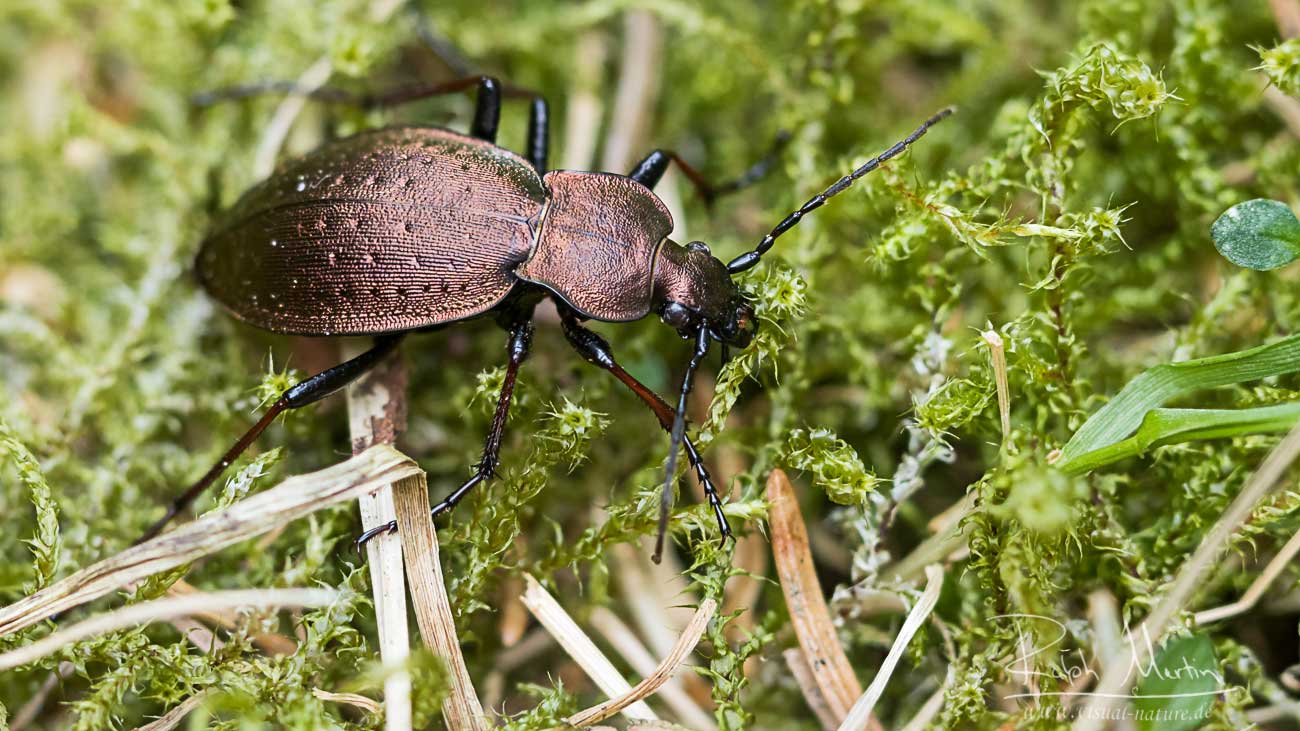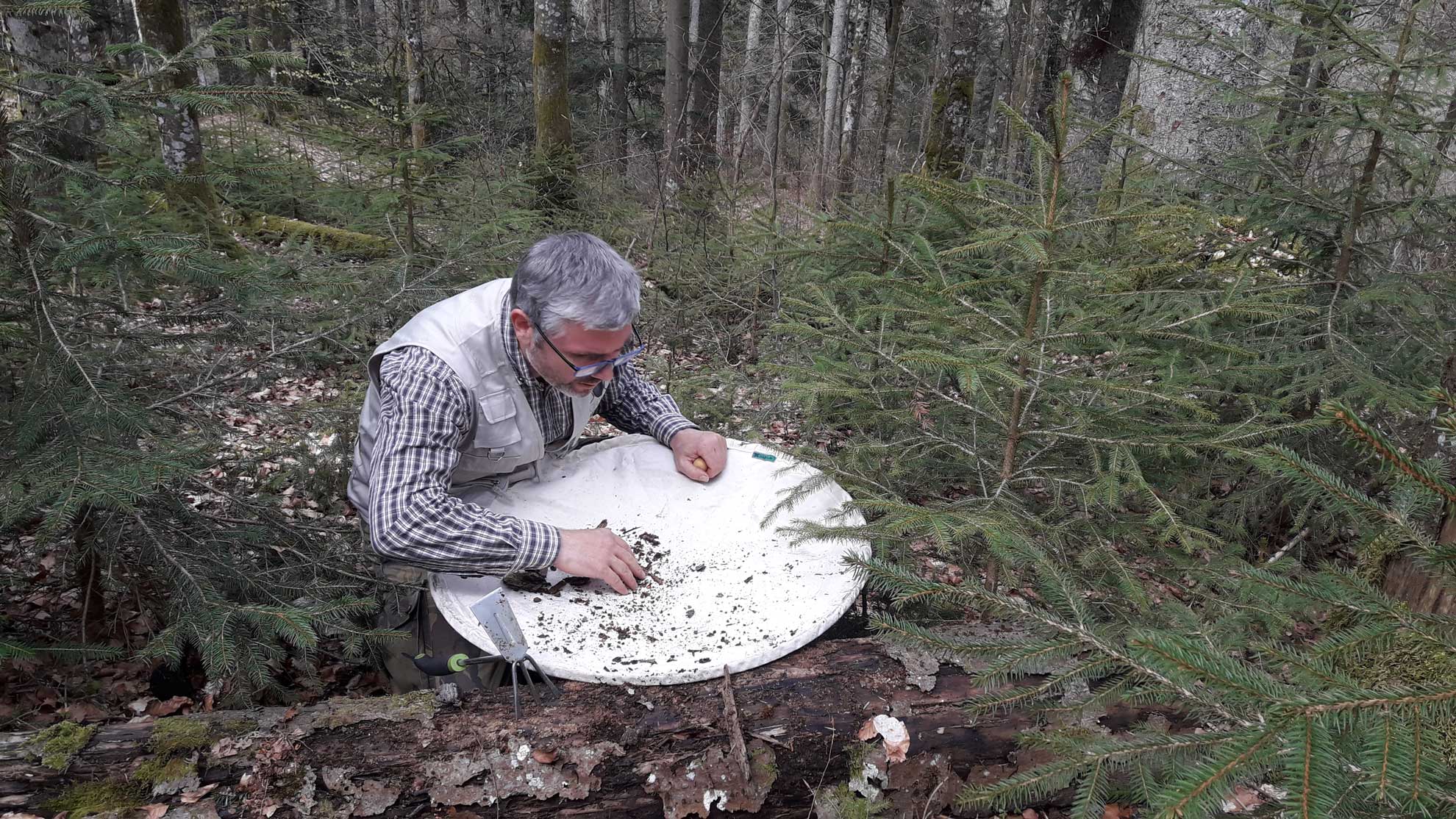52 percent of all ground beetle species in Germany are in decline, while 22 percent have increased, according to the most comprehensive analysis of ground beetle distribution to date. A team of experts led by the German Centre for Integrative Biodiversity Research (iDiv) analysed over 600,000 records of 549 ground beetle species collected across Germany over the past 36 years. The findings, published in the journal Diversity and Distributions, provide new insights into the state of one important group of insects amid the broader debate about insect decline.
Ground beetles play a key role in ecosystems as both predators and seed-eaters, while also serving as prey for many other animals. In Germany, it is estimated that between 20,000 and 70,000 individuals live on every hectare of forest.
The researchers analysed the occupancy of 549 species, i.e., whether they could find a species at a given site. For 383 species, they were able to calculate national population trends over the last 36 years: 52 percent of species declined in occupancy, while 22 percent showed an increase. Interestingly, threatened and non-threatened species declined at similar rates.
“Ground beetles are essential for healthy ecosystems,” says lead author Dr. Shawan Chowdhury. “Their decline is a serious red flag. We plead for more harmonised and systematic monitoring of this insect group.” Chowdhury conducted this study while working at iDiv, the Friedrich Schiller University Jena and the Helmholtz Centre for Environmental Research (UFZ). He is now at Monash University in Australia.
Ground beetle declines are most pronounced among species living in coastal regions. Large, forest-dwelling species appear to be less affected, although the situation is complex even among closely related species. For example, the Central European montane ground beetle Molops elatus has experienced a sharp decline in occupancy. In contrast, the closely related Molops piceus, which has similar ecological habits, has increased in occupancy.
A similar pattern emerges among large Carabus species. Carabus intricatus (the blue ground beetle) is currently expanding to higher elevations and is probably increasing in numbers nationwide due to climate warming. In contrast, Carabus sylvestris, a characteristic species of submontane and montane forests, is declining sharply nationwide.
“Our synthesis and trend analysis was only possible through the great collaboration with many citizen scientists and experts from natural history societies, national parks, museums and federal agencies in our sMon network,” says senior author Prof. Aletta Bonn, research group head at the UFZ, iDiv and the Friedrich Schiller University Jena. “By joint working with experts from society, policy and science we can understand biodiversity change and hopefully also work towards restoration of healthy ecosystems.”
This research was financed inter alia by the Deutsche Forschungsgemeinschaft (DFG; FZT-118).
Original publication
(Researchers with iDiv affiliation and alumni bolded)
Chowdhury, S., Bowler, D. E., Boutaud, E., Bleich, O., Bruelheide, H., Buse, J., Engel, T., Gebert, J., Grescho, V., Gürlich, S., Harry, I., Jansen, F., Klenke, R. A., van Klink, R., Winter, M., Bonn, A. (2025). Widespread decline of ground beetles in Germany. Diversity and Distributions, 31, e70112. DOI: 10.1111/ddi.70112
Contact
Dr Shawan Chowdhury
Global Change Ecology Lab
Monash University
Alumnus of the German Centre for Integrative Biodiversity Research (iDiv)
and the Friedrich Schiller University Jena
https://shawanchowdhurylab.com/
https://research.monash.edu/en/persons/shawan-chowdhury/
Shawan.Chowdhury@monash.edu
Prof Dr Aletta Bonn
Helmholtz Centre for Environmental Research – UFZ
German Centre for Integrative Biodiversity Research (iDiv) Halle-Jena-Leipzig
Friedrich Schiller University Jena
https://www.idiv.de/staff/aletta-bonn/
aletta.bonn@idiv.de
The ground beetle Carabus sylvestris is declining in occupancy in Germany.
Co-author Dr. Jörn Buse from the Black Forest National Park is looking for hybernating ground beetles in deadwood.
Please note: Use of the pictures provided by iDiv is permitted for reports related to this media release only, and under the condition that credit is given to the picture originator.

